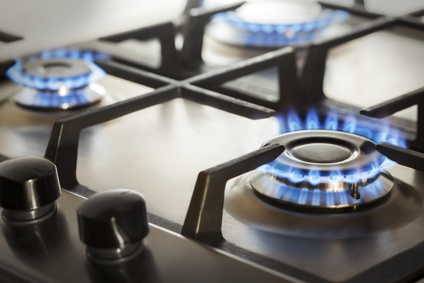Landlord Gas Safety: Common Questions Answered
Published on May 22, 2017 by Sarah Mac

Under the Gas Safety (Installation and Use) Regulations 1998, landlords are legally responsible for the repair and maintenance of gas pipework, flues and appliances; ensuring an annual gas safety check is carried out on each flue and appliance and keeping a record of each safety check. Tenants should also be kept informed about their responsibilities whilst they occupy a property.
All gas appliances including boilers, water heaters, radiators and fires and ovens and hobs plus fittings and flues must be installed and maintained by a Gas Safe Engineer. This includes appliances, fittings and flues in communal areas of houses in multiple occupation (HMOs).
No aspect of landlord gas safety responsibilities may be delegated to a residential tenant.
It can be a confusing area for landlords, so here we answer some of the most commonly asked questions concerning landlord as safety obligations.
What are Gas Safety Checks?
Under the Gas Safety (Installation and Use) Regulations 1998, all gas appliances in rented properties must be checked on an annual basis to ensure they are safe. These checks, technically known as ‘CP12’, must be carried out by a Gas Safe registered (previously CORGI) engineer who must supply a Gas Safety Certificate.
When Should Gas Safety Checks be Carried out?
Landlords are required to arrange a gas safety check every year on each flue or appliance. Written confirmation of the checks must be provided to tenants prior to their check-in date or within 28 days of the checks being carried out and the checks must be dated within 12 months of the date of commencement of the tenancy. One certificate must be retained at the property, one by the landlord and one by the agent if applicable.
What do Gas Safety Checks Apply to?
Landlords must ensure that all gas appliances (permanent or portable) and gas flues that they own and provide for use by tenants have regular gas safety checks. You can find more information here: Regulation (36)(1) of the Gas Safety (Installation & Use) Regulations 1998.
Do Landlords Have a Right of Access to Carry Out Gas Safety Checks?
The tenancy agreement should set out provisions concerning access for any maintenance or safety checks that need to be carried out. Forced entry is not permitted under any circumstances other than an absolute emergency. There’s more about landlord rights of access here and you should also refer to regulation 39 of the Gas Safety (Installation and Use) Regulations 1998.
As a landlord you must be able to demonstrate that you took all reasonable steps to be compliant with the law. If you are having difficulty gaining access therefore, you should follow these steps as recommended by the Health and Safety Executive (HSE):
- Provide the tenant with a notice stating that an attempt was made to complete the gas safety check. Include your contact details so that you can show you made every effort to be available.
- Write to the tenant setting out that a gas safety check is a legal requirement. Explain that it is for the tenant’s own safety and give them the chance to arrange an appointment that suits them.
- Keep a record of all correspondence, written and oral, with the tenant
Bear in mind that HSE inspectors will look for repeated attempts to complete the gas safety check and will expect to see that you have followed the above guidelines.
What about Tenants’ own Gas Appliances?
Where tenants bring their own gas appliances, landlords still have responsibilities for parts of the associated installation and pipework, although not for the actual appliance. The HSE sets out a list of good practice measures that landlords should adopt where appliances are supplied by the tenant:
- At the beginning of the tenancy, let the tenant know about any chimneys or flues that are not suitable for the installation of a gas appliance.
- Include provisions in the tenancy agreement concerning the installation of any tenant provided appliance.
- Make a habit of writing to the tenant every year to remind them that their appliances should be serviced and safety checked each year by a Gas Safe registered engineer. You could offer to include such checks in your own gas safety maintenance regime at a reasonable cost.
- Include all chimneys and flues connected to tenants’ gas appliances within your landlord’s gas safety check. The HSE says this may help to fulfil other legal duties under the Health and Safety at Work etc. Act 1974.
Where can I find more information?
The Health and Safety Executive website is an excellent resource for landlords and letting agents seeking more information on gas safety obligations: http://www.hse.gov.uk/gas/landlords/index.htm.

